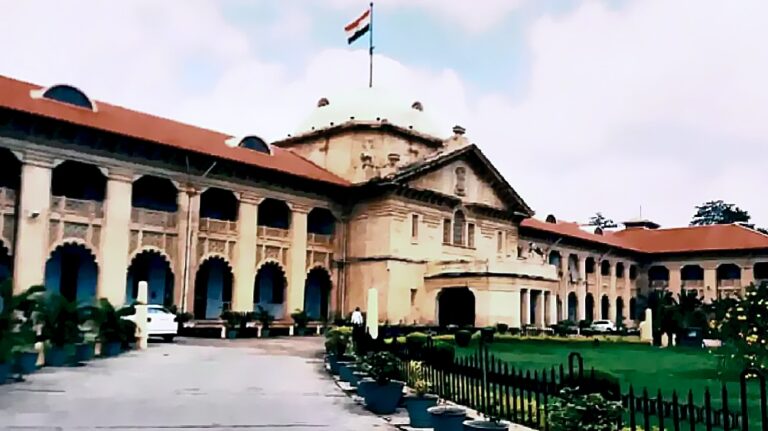The Allahabad High Court, in the case of Khurja Scrap Trading Company vs. Additional Commissioner Grade-2 (Appeal) & Another (decided on 29 August 2025), examined the validity of initiating proceedings under Section 74 of the CGST Act. The petitioner had availed Input Tax Credit (ITC) on purchases made from a registered supplier, whose registration was later cancelled. Authorities sought to deny ITC and initiate Section 74 proceedings, citing the supplier’s non-existence. The Court held that such proceedings are not sustainable unless there is a clear finding of fraud, willful misstatement, or suppression of facts by the taxpayer. Since no such allegation was recorded, the impugned orders were quashed.
Facts
- The petitioner, Khurja Scrap Trading Company, is a registered GST dealer engaged in trading (plastic roofing sheets).
- On 26 November 2021 and 30 November 2021, they purchased goods from M/s Unique Trading Company (supplier), and claimed Input Tax Credit (ITC) based on the invoices. At that time, the supplier was validly registered under GST.
- Payments were made through banking channels; returns (GSTR-1 etc.) filed by the supplier, and the transactions reflected in GSTR-3B etc.
- Later, the supplier’s registration was cancelled on 8 April 2022, i.e. after the transactions.
- An inspection of the supplier’s place of business was done; it was found to be non-existent. Based on that and on the cancellation of registration, the authorities issued a show cause notice under Section 74 seeking to deny ITC and assess penalties etc.
Issues
The main legal question was: Can a notice / proceedings under Section 74 be validly initiated in such circumstances, especially where:
- The supplier was validly registered at the transaction date.
- The documents / returns reflected the transaction.
- There is no finding of fraud, willful misstatement, or suppression of facts by the buyer (petitioner).
Legal / Statutory Background
- Section 74 of the CGST Act provides for demands (including interest and penalty) where tax is not paid, or short-paid, or input tax credit wrongly availed or utilized by reason of fraud, willful misstatement, or suppression of facts to evade tax. The presence of fraud, willfulness, or suppression is essential.
- The CBIC issued a circular on 13 December 2023 (Circular No. 05/2023-GST) clarifying that Section 74 proceedings should be invoked only when investigation indicates that there is material evidence of fraud, willful misstatement or suppression of facts, and that such evidence should be part of the show cause notice.
- Relevant precedents were cited: e.g., Suraj Impex (India) Pvt. Ltd. vs Union of India (SC), and earlier Allahabad HC cases such as R.T. Infotech; Solvi Enterprises etc.
Decision / Holding
- The High Court held that since there was no finding (in the record, show cause notice or elsewhere) that the petitioner had committed fraud, willful misstatement or suppression of facts with intention to evade tax, Section 74 could not be validly invoked.
- The fact that the supplier’s registration was cancelled later, or that inspection found them missing, is not on its own sufficient to negate a bona fide transaction, if at the time of the transaction all formalities were complied with (supplier validly registered, returns filed, payments made etc.).
- Therefore, the impugned orders / show cause notices under Section 74 were quashed, and the matter remanded back for fresh adjudication / decision of the authorities, giving the petitioner opportunity of hearing.
Key Ratio / Principles
- Jurisdictional requirement: Fraud, willful misstatement, or suppression of facts are jurisdictional ingredients under Section 74. The notice must allege or record these. (Without them, Section 74 notice lacks jurisdiction. )
- Temporal validity of registration: Valid registration at the time of transaction is critical. Subsequent cancellation does not retroactively make the transaction invalid if the other supporting documentation exists.
- Role of CBIC Circular (13.12.2023): Even if the circular is subsequent to the transactions, its principles (i.e. requirement of fraud etc.) are to be followed, especially when interpreting Section 74, because penalty / demand provisions are to be strictly construed.
Significance
- The ruling restrains tax authorities from casually invoking Section 74 in cases where no fraud etc. is made out, simply on technical grounds like supplier registration cancellation or absence from inspection.
- It emphasizes the burden on authorities to properly record / allege fraud, suppression etc. in show cause notices.
-
It provides clarity to taxpayers that valid registrations and proper documents, even if later cancelled supplier registration etc., can protect ITC, provided no malafide element is shown.
